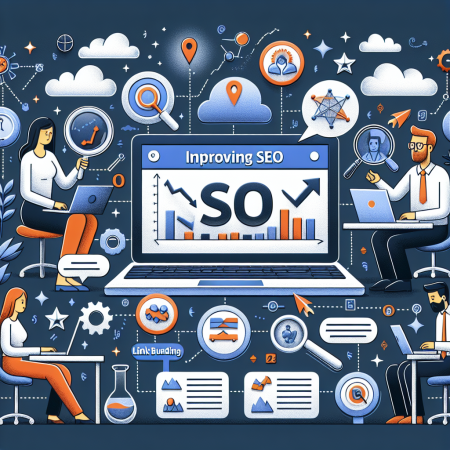How to Improve Your SEO Even If You’re New to It
body {
font-family: Arial, sans-serif;
line-height: 1.6;
margin: 20px;
}
h1 {
color: #333;
}
h3 {
color: #0073e6;
}
ul {
list-style-type: square;
}
.faq-section {
background: #f9f9f9;
padding: 20px;
border: 1px solid #ddd;
margin-top: 20px;
}
.faq-section h3 {
margin-top: 0;
}
How to Improve Your SEO Even If You’re New to It
- Keyword Research
- On-Page SEO Techniques
- Content Creation Strategies
- Understanding Analytics
Keyword Research
Alright, let’s dive into my favorite part of SEO – keyword research! When you’re just starting out, it might seem daunting, but trust me, it’s easier than you think. This is where the magic begins. You see, the right keywords connect you to the right audience. They are the bridge between what people are searching for and what you have to offer.
First things first, always start with brainstorming. Think about what your potential audience might type into search engines. Put yourself in their shoes. For example, if you have a blog about homemade bread, they might search for “easy homemade bread recipes” or “quick bread baking tips.” Write down these ideas.
Next, you’ll want to use a keyword research tool like Google Keyword Planner, Ahrefs, or even free options like Ubersuggest. These tools will help you find keywords that have good search volume but aren’t too competitive. Look for long-tail keywords; they’re more specific and less competitive.
On-Page SEO Techniques
Alright, so you’ve nailed down your keywords. Now, it’s time to optimize your pages with on-page SEO techniques. This is where you make sure your website tells search engines exactly what it’s about. Think of it as giving your website a fine-tuning.
One of the most important on-page techniques is optimizing your title tags and meta descriptions. These are bits of HTML code that give search engines an idea of what your page is about. Make sure your primary keyword is included in both. Keep them catchy and concise to grab readers’ attention.
Don’t forget about header tags (H1, H2, H3, etc.). These help structure your content and make it easier to read. Use your primary keyword in your H1 and secondary keywords in H2 and H3. This not only helps with SEO but also enhances the user experience.
Content Creation Strategies
Now, let’s talk content, the heart of SEO. If you’ve got awesome content, search engines will notice, and so will your audience. It’s not just about stuffing keywords anymore; it’s about providing real value. Your content should solve problems and answer questions for your readers.
One strategy I swear by is creating evergreen content. This is content that remains relevant over time. Think “how-to” guides, tutorials, and comprehensive resources. These pieces consistently attract traffic because they’re always useful.
Also, mix up your content formats. Don’t just stick to blog posts. Experiment with videos, podcasts, infographics, and slideshows. Different formats appeal to different people. Plus, multimedia content can boost your SEO as they often lead to longer page visits.
Understanding Analytics
Last but certainly not least, let’s talk analytics. You can’t improve what you don’t measure, right? Google Analytics is your best friend here. It’s packed with insights about your website’s performance and user behavior. It’s like having a backstage pass to see what’s working and what’s not.
First, get familiar with the basics. Check out your traffic sources. Where are your visitors coming from? Is it organic search, social media, or direct traffic? This will help you understand which efforts are paying off and where you might need to focus more attention.
Look at your most popular pages and content. Are they aligning with your targeted keywords? If certain pages are performing well, analyze what you’re doing right there and replicate it. Conversely, identify underperforming pages and revisit your SEO strategy for them.
FAQ
Q: What are long-tail keywords, and why are they important?
A: Long-tail keywords are longer and more specific search phrases. They are important because they usually have lower competition, making it easier to rank for them. Additionally, they often attract more qualified traffic, as these users are further along in their buying journey.
Q: How often should I update my content for SEO purposes?
A: Regular updates are essential for SEO. Aim to audit and refresh your content every few months. Keep an eye on performance metrics, and if a once-popular post starts to lag, it might be time for an update with new information or a fresh perspective.
Q: What’s the importance of meta descriptions in SEO?
A: Meta descriptions play a crucial role in attracting clicks from search engine results pages (SERPs). They provide a brief summary of your page’s content. A compelling meta description can improve your click-through rate (CTR), indirectly boosting your SEO rankings.
Q: Can social media impact my SEO efforts?
A: Absolutely! While social media signals themselves aren’t direct ranking factors, they can impact SEO. Social media can drive traffic to your website, increase your content’s visibility, and help you gain backlinks, all of which are beneficial for SEO.

